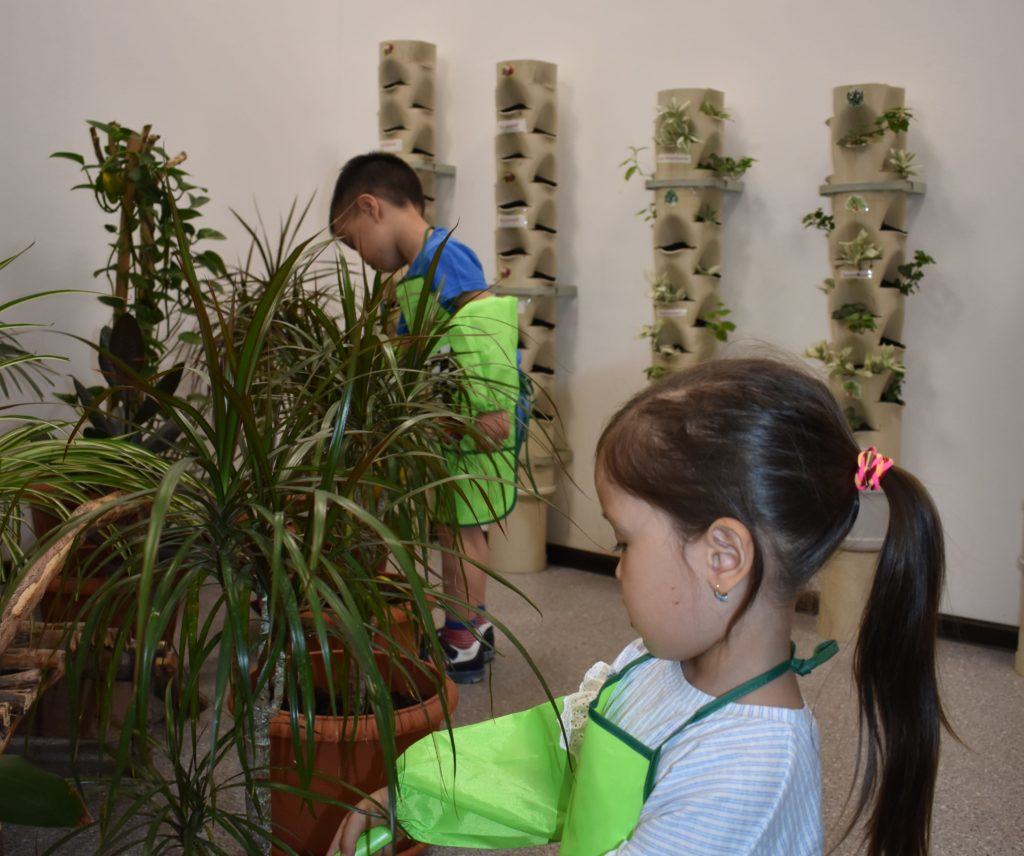NUR-SULTAN – The experienced and qualified teachers at Karlygash kindergarten under the Presidential Affairs Department medical centre use best practices by sharing knowledge with preschool teachers from the regions.
They demonstrated that exchange of ideas in mid-June when more than 100 teachers participated in a seminar in the capital dedicated to developing preschool education in the context of modern requirements. The event gathered leading experts, scholars and practitioners in the field to discuss innovative educational methods.
“Our teachers have studied the best international practices and adapted them to the local education system over the last 10 years. Now, they are ready to share the knowledge and lessons learned with preschool teachers nationwide,” said Presidential Affairs Department medical centre head Alexey Tsoy in his opening remarks. The medical centre is the parent company for the kindergarten.
Three kindergartens with a design capacity of 750 seats are located on the left bank of the city. They are open for children of civil service workers.
“First director Gulnara Abdullina is the ideological founder of our kindergarten. She introduced new techniques and contributed to the development of preschool education. Our regulatory documents developed on the basis of the regulatory framework and practical works help our teachers and staff. We are also proud to have a wide range of additional services,” said Karlygash kindergarten director Gulnara Iskakova.
Innovative methodologist Assel Sadvakasova noted the 4Cs – creativity, critical thinking, communication and collaboration in schools – are the main components in education.
“Our kindergarten has 10 years of experience. We have smart rooms and interactive sandboxes for motor development. We also use the Reggio Emilia philosophy in the learning process. Children should have many ways to express themselves through drama, music, painting, singing, dancing, designing and discussion activities. This requires a creative environment and space such as centres of activity, creativity and design,” she said.
The innovative methods include the language immersion used in bilingual language education, which in Estonia starts in kindergarten.
To develop communication skills and visual perception, teachers present materials with the help of interactive equipment such as boards with different content, floors and sandboxes, a virtual museum and touch panels.
The STEAM technology helps to develop mathematical skills and the fundamentals of robotics and creative activity.
The kindergarten organised the Green-studio laboratory, where the water system, hydroponics and vertical flowerbeds demonstrate intelligent farming. A creative and experimental atelier is also available.
“We plan to organise an international forum in Sept. 19-20 and to invite professionals and experts from other countries to share the knowledge and advanced methods in teaching. There are more questions than answers today in the field of preschool education. The lack of specialists is also a challenge,” she said.
The kindergarten pays special attention to diet and healthy lifestyle, said medical support department head and paediatrician Saida Khalmukhamedova.
“We make a special menu for the season. The menu is reviewed and analysed by a dietician. We also want to introduce a varied menu. Next year, we will make a menu taking into account the individual characteristics of children and the allergic diseases. We carry out daily corrections in the menu. In the future, we want to use the elements of molecular cuisine. We use some elements of stone therapy and water therapy by Sebastian Kneipp’s method,” she said.



